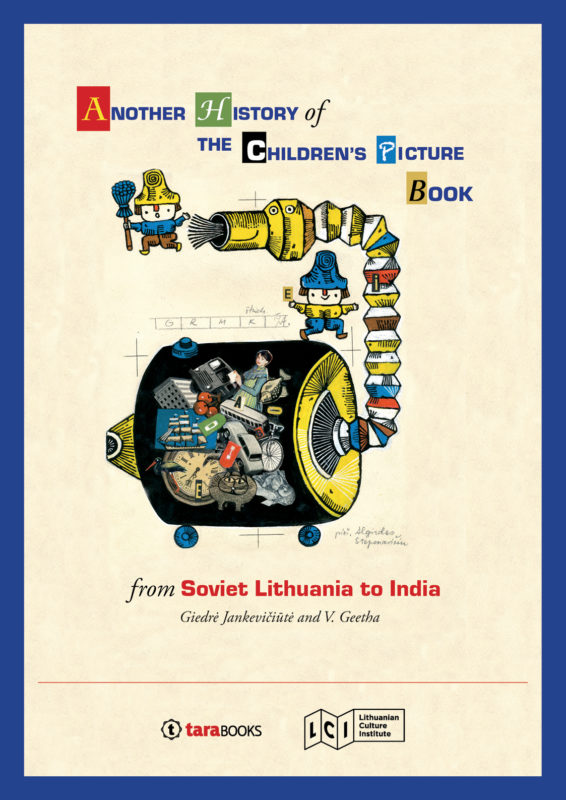Another History of the Children‘s Picture Book: from Soviet Lithuania to India. A re-imagining of global picture book history

Bologna Children‘s Book Fair is back this year from the 3rd to the 6th of April. “The Natural Habitat for Children‘s Content” is the main theme of the 54th edition, which presents a busy programme of events, talks and book presentations with 1278 exhibitors and more than 100 countries represented. Each year, Bologna Children‘s Book fair attracts thousands of professionals. Illustrators, graphic designers, literary agents, publishers, authors, translators, but also librarians and teachers gather together in Bologna to share their knowledge, ideas and new books. With more than 26,000 visitors expected to attend, the fair represents an unmissable opportunity to discover the latest innovation in the Children‘s literature sector and meet new authors and illustrators.
Again this year, Lithuania is present with a selection of 90 illustrated books representing the newest and most interesting national productions. The highlight of this year‘s edition is the presentation of the book Another History of the Children‘s Picture Book: from Soviet Lithuania to India, produced by the Indian publishing house Tara Books and Lithuanian Culture Institute. The book will be presented on the 4th of April, ay 7.00 pm in in Corraini MAMbo art bookshop, via Don Minzoni 14, Bologna. Roger Thorp, Editor at Thames & Hudson, will moderate a discussion between the two authors, the Indian social historian, V. Geetha, and Dr. Giedrė Jankevičiūtė from the Lithuanian Culture Research Institute.
The book, already translated into German and presented at Leipzig Book Fair, is now published in English for the first time. It offers a unique opportunity to explore the influence exercised by the Soviet Union over Indian publications and Lithuanian society. As it is described in its Abstract: “at a particular period in Indian history, cheaply available Soviet picture books, in English and vernacular translations, changed the way Indian children read. Meanwhile, a different and more problematic kind of cultural ‘globalization’ was underway in the regions governed by the Soviet State, and Lithuania is a rich case in point. This book calls for a re-imagining of global picture book history”.
By Elena Fiorotto
Erasmus +, European Voluntary Service